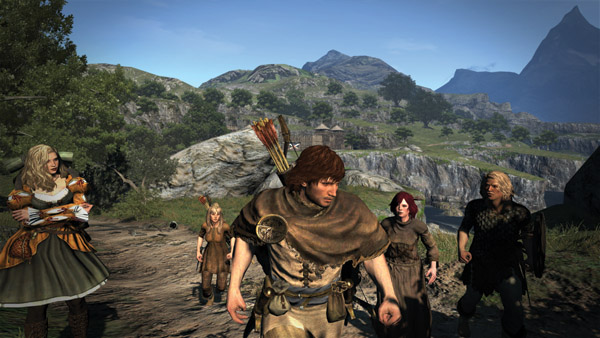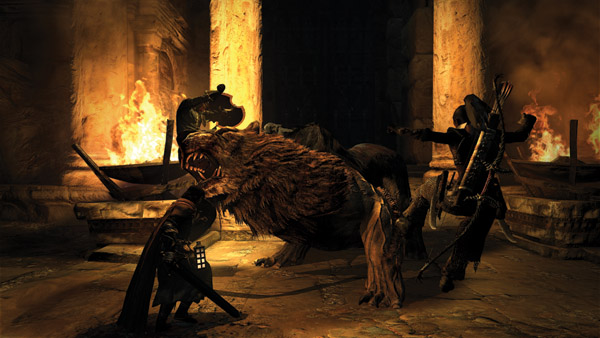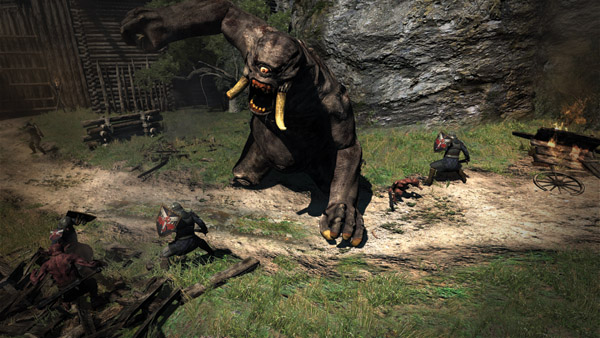
This is a quaint little game about climbing a cyclops like an oak tree and putting out its single eye with the stab of a fiery dagger. The added power of a PC cleans up the graphics a bit at the edges, and new hotkeys make it slightly more convenient to chuck a bomb without sorting through several pages of muddled inventory, but this is basically what came out for last-gen consoles a couple years back. Though it’s nominally an open-world game, Dragon’s Dogma is a fraction of the size of something like Skyrim. You could probably run across the whole thing in 15 minutes, if it weren’t for the zombies in your way…
Dragon’s Dogma distinguishes itself by not kowtowing to player whim. Where most open-world games scale their challenges to the PC’s level, letting a curious player rove far and wide from the onset, this game doesn’t let you go anywhere it doesn’t want you to go until you’ve gained the proper experience. Want to cross that bridge? Too bad, angry lizard men with spears. Want to venture farther north? Enjoy the snow harpy onslaught. This is doubly true at night, where the hum-drum bandit gangs that populate the road are replaced with incorporeal phantasms or necromantic armies of the undead, durable and far too deadly before you have a few levels under your belt.

Levels are easy enough to get that you don’t really mind the restrictions—they give you something to push back against. Each time you stumble back, wounded and harried, from a barely successful sortie out of town, you spend your accrued experience on upgrades: arrow barrage for a Ranger, fiery weapon enchantments for a Mage (for that cyclops eye that’s been bothering you), or “Gouge” for an Assassin, which lets you stab cyclops eyes faster, and better, than anything you’ve seen before or since. Boiled down, much of Dragon’s Dogma‘s combat sounds like a cut-rate Shadow of the Colossus: scale the monster, hammer on X until it falls over. But this ignores the deep, almost Character Action style at its core.
There are nine classes in all, and each has a slew of special abilities that radically change your play. Sorcerers pair well with other Sorcerers, dipping in and out of each other’s spell-charging auras to amplify their own casting speed. Sword swingers lack a dodge roll, instead depending on an evasive sword slash to dance around a large enemy’s cumbersome blows, and dart between foes with “Blink Strike,” a sword-first charge pilfered from Devil May Cry. Dagger-based classes can juggle goblins into the air and explode them with a burst of black powder, or tangle a mob in spiderwebs and hurl them to the ground. With so many cool abilities on offer—satisfying in damage and spectacular in visuals—it’s almost a crime the game only lets you equip three at a time.

But you can change them around any time you want, and there’s always something new to try. This is the game’s main philosophy: bored, lost, enemies too hard? Try something else! Be a magic user, be a magic knight, scale a golem or blitz its vulnerable magick medals with arrows from afar, forge a copy of the duke’s mythical magic ring and hand back the phony, because that increased 15% cast speed is too good to pass up, even in service of your liege (never liked the guy anyway, too pompous). In the early goings, Dragon’s Dogma seeds its worlds with stumbling blocks. In burdening you with restraints, it also grants you the sublime feeling of breaking them.

